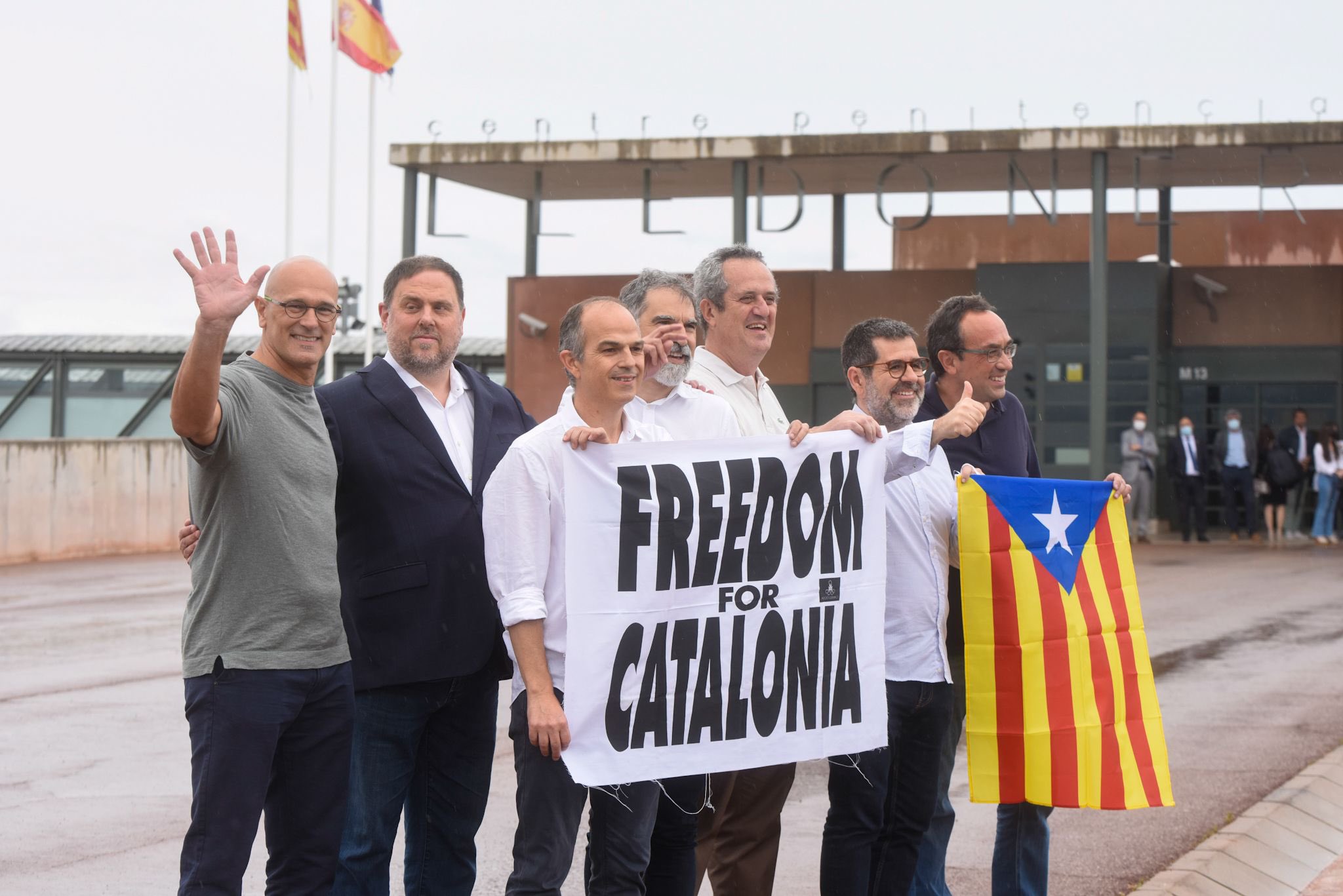THE SPANISH government is to study changes to the law covering the misappropriation of public funds, barely a week after proposing scrapping the sedition law. The moves are aimed at appeasing pro-Catalan independence parties, members of which were accused and in some cases convicted of both offences in the wake of the 2017 attempt by the region to unilaterally secede from Spain.
Speaking in an interview to Spanish daily La Vanguardia at the weekend, Socialist Party Prime Minister Pedro Sánchez explained that the changes he and his junior coalition partner Unidas Podemos had proposed to the archaic sedition law were aimed at ‘homologating it with the rest of Europe’. He added that other parties are ‘free to file amendments to the law’, hinting that a change to the way misappropriation of public funds is defined could be welcomed.
On Monday, the minister for the presidency, Félix Bolaños, confirmed that the offence would be studied ‘in depth’ should any parliamentary group propose an amendment as the sedition changes make their way through Congress.
The Catalan Republican Left (ERC) is one of the parties that wants to see the change, which would separate the misuse of public money when it’s for personal gain or when it is for other reasons.
This, in theory, would mean lower sentences for the leaders of the Catalan independence drive, who could argue that the public money that they misappropriated was spent on the illegal independence referendum of 2017 in Catalonia rather than for personal gain.
The central government lacks a working majority in Congress and so relies on smaller parties such as the ERC to pass legislation. The ERC is in power in the Catalan regional government, also in a minority. It has requested the change to the misappropriation of public funds in exchange for a deal with the Catalan Socialist Party to get the upcoming regional budget approved.
Among the independence leaders convicted in the Supreme Court for sedition and for misappropriation of public funds was Oriol Junqueras, the president of the ERC. He and his colleagues served prison time but were subsequently pardoned by the government and released from jail, as part of Sánchez’s commitment to finding a political solution to the independence drive.
As well as being given a jail term, Junqueras was banned from holding public office for 13 years. Any eventual change to the sedition or the misappropriation offences could not only see his jail term reduced retroactively, but also the amount of time that he is frozen out of political life.
Meanwhile, there are figures from the Catalan independence drive who are yet to see the inside of a courtroom. The most famous of these is Carles Puigdemont, the regional premier of Catalonia in 2017 at the time of the referendum and subsequent unilateral declaration of independence.
Puigdemont fled Spain when the central government took control of Catalunya, and has been living in self-imposed exile in Belgium since. If these changes to the law are made by the government, he could in theory be facing a more lenient sentence than his colleagues did if he ever eventually stands trial.
The government’s proposal for the sedition law is to remove it from the Spanish Criminal Code altogether. The law, which dates from the 1800s, is defined as an act by someone to ‘publicly and tumultuously rise up to prevent, by force or outside the legal channels, application of the law, or any authority, official corporation or public officer from the lawful exercise of their duties, or implementation of administrative or judicial resolutions.’ It carries a maximum 15-year prison sentence.
In its place, the government has proposed the offence of ‘aggravated public disorder’, which would have a five-year maximum jail term.
Changes to the misappropriation of funds law, however, might not be so simple. There are fears – even among Unidas Podemos and the ERC – that politicians convicted in corruption cases could benefit from the modification.
ERC spokesperson in parliament, Gabriel Rufián, suggested on Tuesday that the solution had to be ‘surgical’ and that it only be applied to misappropriation of funds when it is ‘linked to sedition.
For his part, the leader of the main opposition Popular Party (PP), Alberto Núñez Feijóo, committed last week to overturning the reforms to the sedition law should he be voted in as prime minister at next year’s general election.
‘We propose that sedition remain in the Criminal Code and that a new offence of calling an illegal referendum be introduced,’ he said at a press conference on Monday.
The leader of far-right Vox, meanwhile, reacted to the news by calling on the PP to file a motion of no confidence against the prime minister in Congress, promising to offer his party’s support. ‘I will support any initiative that serves to get Pedro Sánchez out of La Moncloa [prime ministerial palace] and call early elections,’ the leader of the third-biggest group in Congress said at a press conference on Monday.
Read more:
Catalan government left in crisis after pro-independence party withdraws its support
Click here to read more Spain News from The Olive Press.








